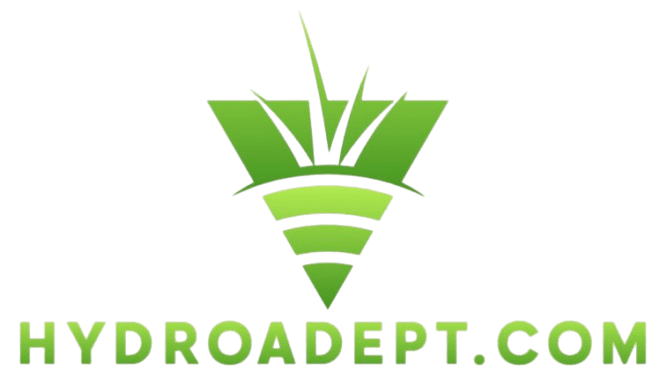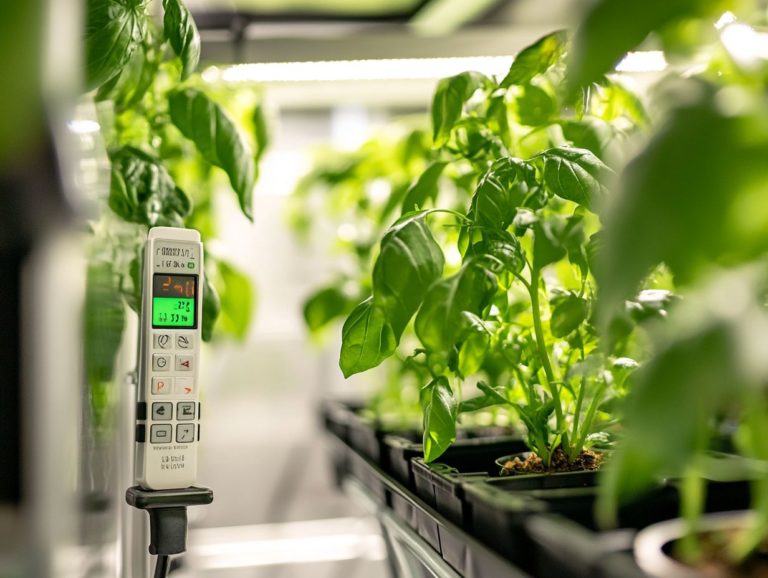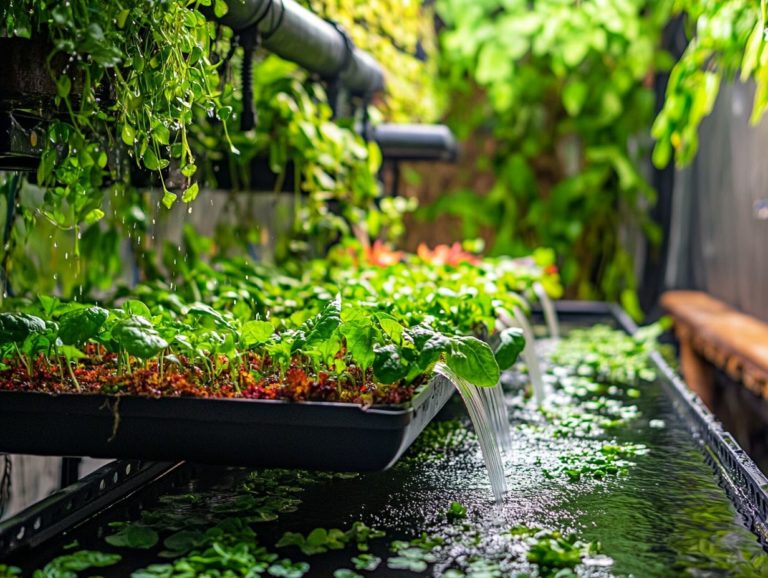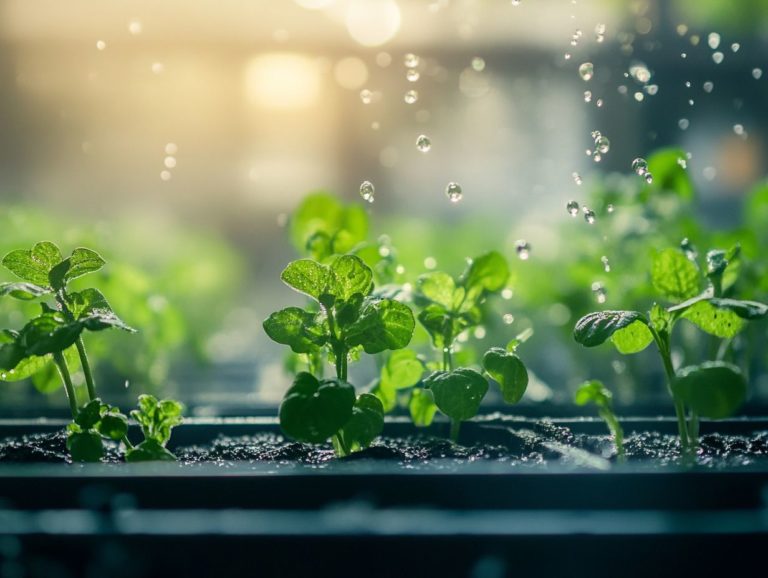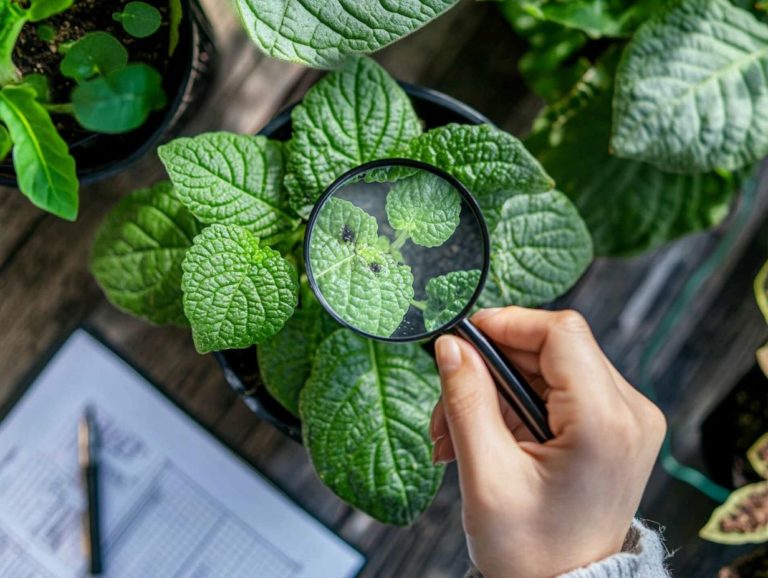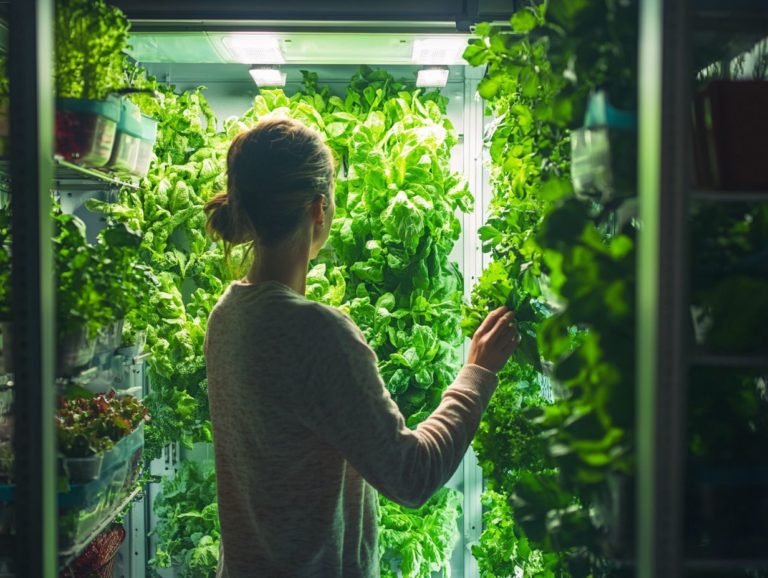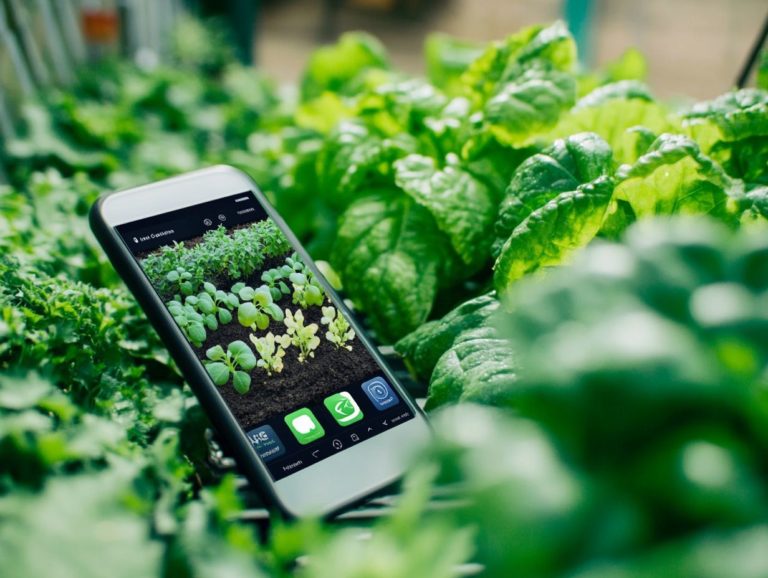How to Choose Hydroponic Plants for Beginners?
Curious about hydroponic gardening and how it can revolutionize your plant-growing experience with various hydroponic systems? This article delves into the essentials of hydroponics, highlighting its myriad benefits, particularly for those just starting out.
This guide will walk you through key factors to consider when selecting the right plants. You’ll learn about different types of plants, from leafy greens to herbs, and their lighting needs and space requirements. You’ll also uncover the best low-maintenance options and common pitfalls to avoid.
Whether you’re a novice eager to learn or someone looking to refine their skills, this guide has valuable insights for every level of gardener.
Contents
- Key Takeaways:
- What is Hydroponic Gardening?
- Benefits of Growing Hydroponic Plants
- Factors to Consider When Choosing Hydroponic Plants
- Best Hydroponic Plants for Beginners
- Common Mistakes to Avoid when Choosing Hydroponic Plants
- Frequently Asked Questions
- What are hydroponic plants and why are they ideal for beginners?
- What factors should be considered when choosing hydroponic plants for beginners?
- Which types of hydroponic plants are recommended for beginners?
- How much space is needed to grow hydroponic plants for beginners?
- Are there any specific nutrients or fertilizers needed for hydroponic plants?
- How do I maintain and care for hydroponic plants as a beginner?
Key Takeaways:
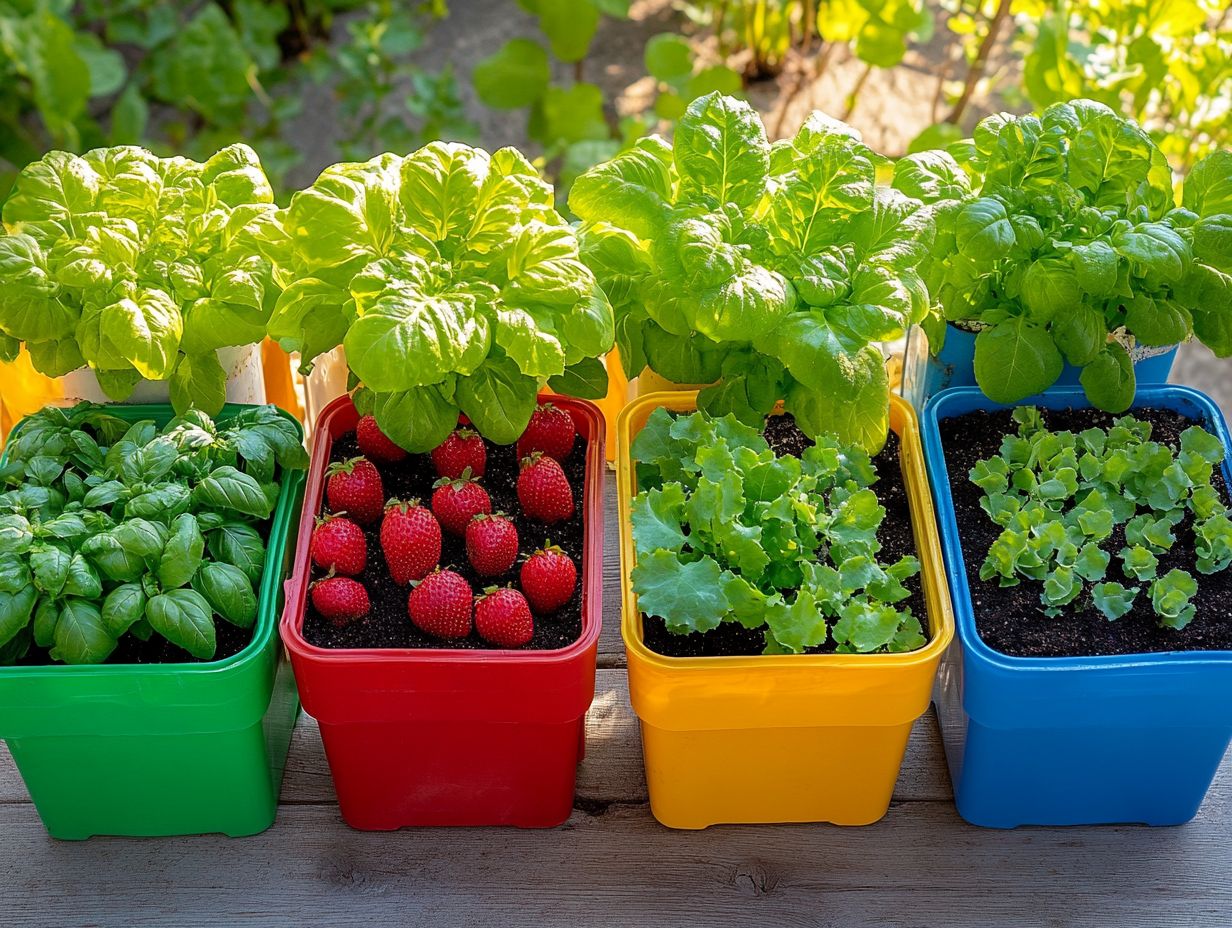
- Hydroponic gardening is a soil-less method of growing plants, making it ideal for beginners with limited gardening space.
- When choosing hydroponic plants, consider factors such as lighting, nutrients, space, and climate to ensure optimal growth and success.
- Opt for easy-to-grow and low-maintenance plants, such as herbs and leafy greens, to start with hydroponic gardening. Avoid common mistakes like over or under-watering for successful results.
What is Hydroponic Gardening?
Hydroponic gardening is your gateway to a modern method of cultivating plants without the hassle of soil. This technique uses water mixed with nutrients that plants need to grow to foster optimal growth. You can efficiently grow a variety of crops, from leafy greens and herbs to tomatoes, cucumbers, and even strawberries, all while allowing precise control over nutrient balance and environmental conditions.
By using techniques like solution culture and aggregate culture, hydroponics serves as a sustainable alternative to traditional farming methods. It is perfect for indoor gardening enthusiasts and for those with limited space.
Historically, hydroponics has roots that reach back to ancient civilizations, with significant advancements unfolding during the 20th century. Unlike conventional gardening, which relies heavily on soil, hydroponics offers numerous benefits, including faster growth rates, higher yields, and a reduced need for pesticides and fertilizers. This method also optimizes water usage, making it particularly advantageous for arid regions.
Explore various hydroponic systems like deep water culture and nutrient film technique. You’ll likely find that the absence of soil leads to fewer pests and diseases, resulting in a cleaner and more abundant harvest.
Benefits of Growing Hydroponic Plants
The advantages of growing hydroponic plants are plentiful. You can achieve faster production cycles, allowing you to cultivate crops like leafy greens and herbs much quicker than traditional soil gardening.
You can precisely control nutrient balance. This leads to optimal growth conditions, resulting in healthier plants and higher yields. This method is increasingly popular among both novice and seasoned gardeners looking to maximize their available space.
Advantages for Beginners
As a beginner in hydroponics, you’ll find a wealth of advantages that make this innovative gardening method accessible and rewarding. The beauty of DIY hydroponic systems lies in their simplicity, allowing you to cultivate fast-growing crops like lettuce, radishes, and basil without extensive gardening experience.
The setup is straightforward, letting you swiftly move from seed to harvest within your home. This immediate gratification boosts your confidence and opens the door to experimenting with a vibrant array of plants, from zesty herbs to colorful vegetables. To enhance your gardening experience, consider learning how to choose the right hydroponic system that suits your needs.
You ll discover a treasure trove of online resources and local community groups offering invaluable support. These can help you troubleshoot any issues and share handy tips. By connecting with others who share your passion, you’ll enrich your learning experience and build a supportive network, making your hydroponics journey all the more enjoyable.
Ready to start growing your own plants? Dive into hydroponics today!
Factors to Consider When Choosing Hydroponic Plants
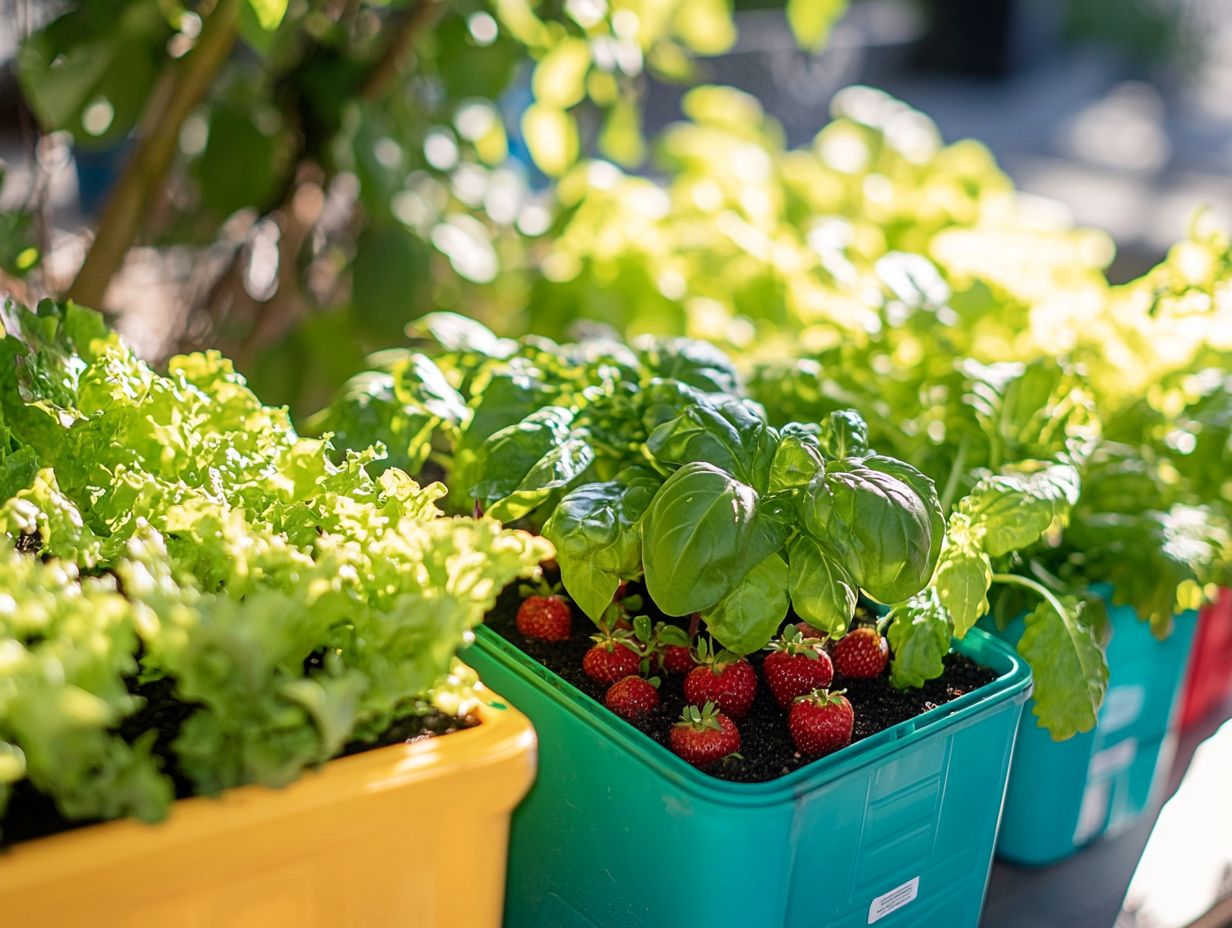
When choosing hydroponic plants, it s vital to consider several key factors to ensure their successful growth and optimal yields.
Lighting plays a crucial role, as different plants have distinct light requirements. Herbs like mint and oregano thrive in low light, while fruiting plants such as tomatoes and cucumbers require high-intensity lighting to flourish. If you’re interested in growing these plants, consider reading our guide on how to start hydroponic gardening at home.
Understanding nutrient requirements is crucial, as each plant species demands specific nutrient balances to thrive. This understanding directly impacts growth rates and the overall health of the plants in your hydroponic system.
Lighting and Nutrient Requirements
Lighting and nutrient requirements are key in hydroponics. They significantly impact your plants’ growth and development.
By tailoring adequate lighting to your crops whether leafy greens or fruiting types you can enhance photosynthesis and yield. Photosynthesis is the process through which plants convert light into energy.
Coupling the right nutrient levels with proper lighting ensures your plants receive the essential elements for robust growth.
You ll be amazed at how many different plants you can grow, from spinach and chives to strawberries and beans, all within a controlled environment.
To craft the ideal growing atmosphere, utilize various types of lighting, such as energy-efficient LED and fluorescent lamps. LEDs are renowned for longevity and low heat output, offering a customizable spectrum that adapts to different growth stages.
Fluorescent lights are favored for their cost-effectiveness and ability to illuminate larger areas while delivering adequate lumens.
Balanced nutrient solutions rich in essential minerals like nitrogen, phosphorus, and potassium should be diligently monitored. By ensuring your plants receive not only the right lighting but also a comprehensive nutrient profile, you can unlock their full growth potential and enjoy lush harvests.
Space and Climate Considerations
Space and climate considerations are crucial to the success of your hydroponic gardening endeavors, especially if you’re utilizing indoor hydroponic systems.
By evaluating your available space, you can determine which type of hydroponic setup will work best for your needs, be it vertical systems, Nutrient Film Technique, or Ebb and Flow systems.
Understanding climate conditions, such as temperature and humidity levels, is essential for creating an optimal environment where your crops can thrive.
Assessing your available square footage allows you to customize your system based on the specific plants you want to grow. Each hydroponic method offers unique advantages, like space efficiency or accelerated growth rates.
Adapting your hydroponic systems to indoor climates involves integrating climate control solutions, such as grow lights, humidifiers, or dehumidifiers. By diligently monitoring these conditions and making necessary adjustments, you can cultivate an ideal atmosphere that fosters robust growth.
This approach maximizes your yield regardless of the seasonal changes happening outside.
Best Hydroponic Plants for Beginners
As you embark on your hydroponics journey, choosing the right plants can transform your experience into a smooth and fulfilling adventure.
For beginners, some of the best options are easy-to-grow leafy greens like lettuce and spinach, along with low-maintenance herbs such as basil, mint, and chives. These plants are incredibly forgiving, allowing novice gardeners to see quick results.
This sense of accomplishment will likely inspire you to delve even deeper into the fascinating realm of hydroponic gardening.
Start your hydroponic journey today and watch your garden thrive!
Easy to Grow and Low Maintenance Options
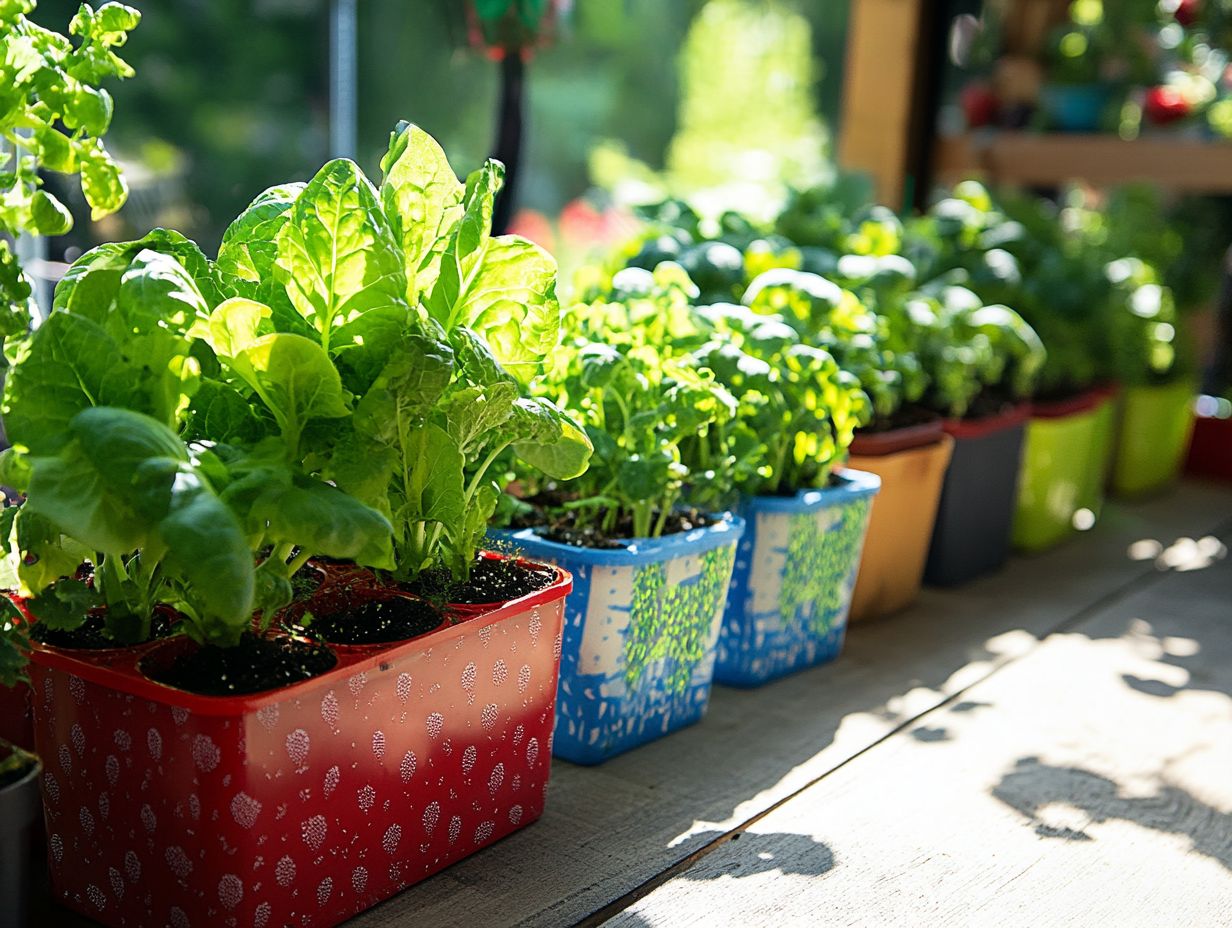
Choosing easy-to-grow, low-maintenance options is essential as a beginner eager to thrive in hydroponic gardening. Plants like lettuce, spinach, and herbs such as basil and oregano require minimal effort while delivering rapid growth and impressive yields. These selections not only cater to novice gardeners but also highlight hydroponic systems ability to provide fresh produce with a fraction of the time and resources needed for traditional gardening.
These plants flourish in nutrient-rich water, making them ideal for simple hydroponic systems. For beginners looking to start their journey, checking out the best hydroponic systems can be beneficial. For example, you can expect lettuce to mature in as little as 30 days, while basil and oregano grow quickly, adding both flavor and variety to your meals. Their care routines involve monitoring pH levels, which measure acidity and are crucial for plant health, and ensuring adequate light requirements that are straightforward and easily manageable.
By opting for easy-to-grow hydroponic plants, you’re promoting sustainability. They use less water and eliminate the need for pesticides, creating an ideal starting point for anyone eager to explore the world of food cultivation. For those just beginning, check out the top 5 hydroponic growing systems for beginners without an overwhelming commitment.
Common Mistakes to Avoid when Choosing Hydroponic Plants
When embarking on your hydroponic gardening journey, steering clear of common missteps can greatly elevate both your success and enjoyment. It s easy to underestimate the significance of nutrient balance, often overlooking the specific requirements of different plants, which can result in disappointing growth or even crop failures.
Avoid pitfalls like overcrowding your plants or choosing varieties ill-suited for your available space. By doing so, you’ll set yourself up to cultivate a flourishing hydroponic garden. If you’re looking for guidance, check out how to get started with hydroponic systems, brimming with healthy, vibrant plants.
Tips for Success
Ready to take your hydroponic gardening to the next level? Follow these exciting tips for success! Begin by mastering the art of nutrient balance and regularly testing your water solutions to create the perfect environment for your crops.
Invest time in research to gain invaluable insights and engage with community forums focused on hydroponics. Additionally, exploring the top 5 hydroponic fertilizers for beginners will ultimately lead to a flourishing garden filled with a delightful array of plants like tomatoes, cucumbers, and various herbs.
Learning from experienced growers will further enhance your approach, helping you sidestep common pitfalls and maximize your yields. Engaging with local gardening clubs or online networks allows you to exchange ideas and success stories, fostering a sense of camaraderie within the gardening community.
Establishing a routine for maintenance tasks such as cleaning your equipment, monitoring pH levels, and keeping an eye on plant health will ensure a stable system and promote robust growth. By implementing these strategies, you can cultivate a vibrant, productive hydroponic garden that thrives on innovation and the shared wisdom of fellow enthusiasts. For those looking to get started, understanding how to choose the right hydroponic system for DIY is essential.
Frequently Asked Questions
What are hydroponic plants and why are they ideal for beginners?
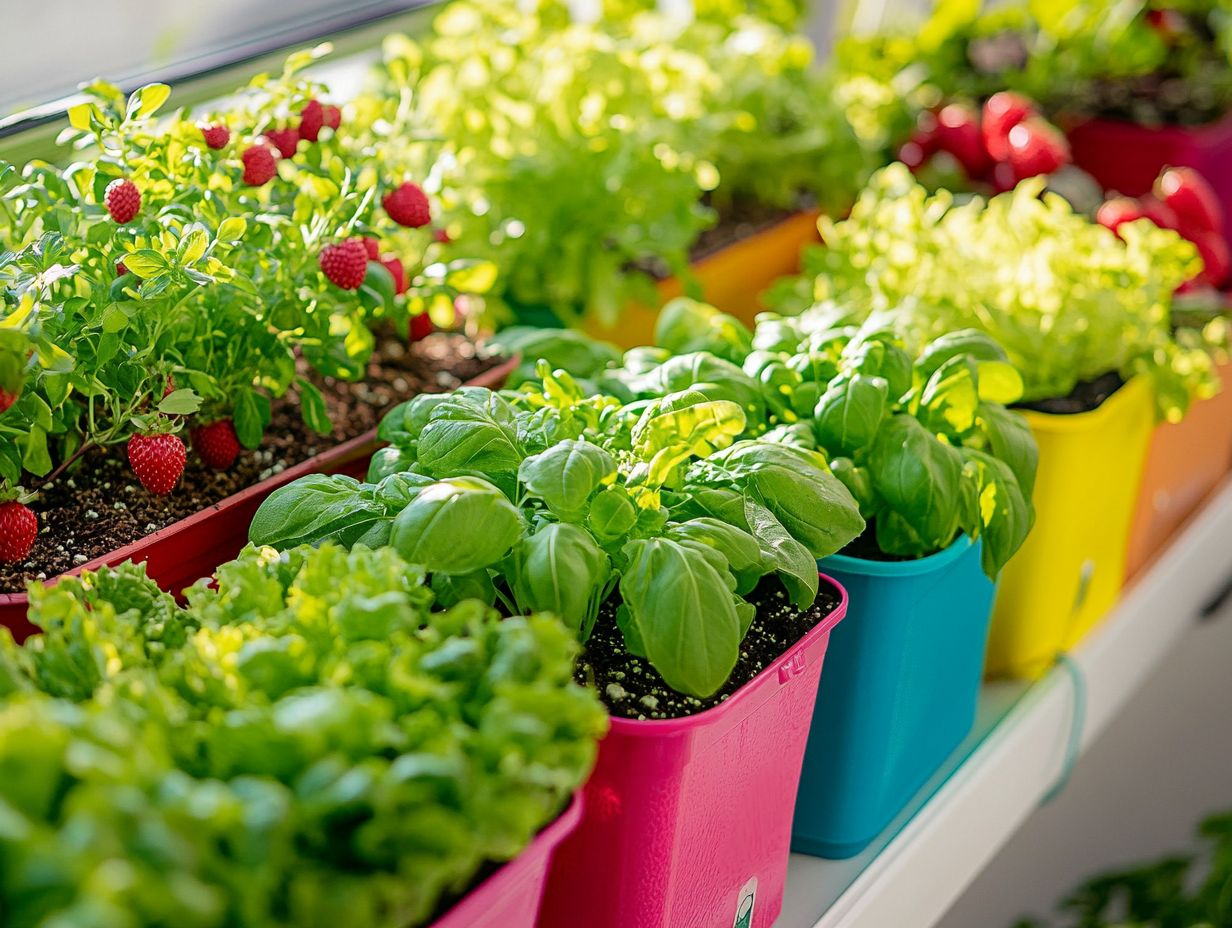
Hydroponic plants are grown in a soilless environment where nutrients are provided through water. They are ideal for beginners as they require less maintenance and allow for more control over plant growth.
What factors should be considered when choosing hydroponic plants for beginners?
Some important factors to consider are the type of plant, its growth rate, and the availability of space and resources such as lighting and nutrients.
Which types of hydroponic plants are recommended for beginners?
Some easy and low-maintenance plants for beginners include herbs like basil and mint, leafy greens like lettuce and spinach, and small fruits like strawberries.
How much space is needed to grow hydroponic plants for beginners?
The space requirements will vary depending on the type and number of plants you choose. However, a small setup can easily fit on a windowsill or a small shelf.
Start your hydroponic adventure today and watch your garden flourish!
Are there any specific nutrients or fertilizers needed for hydroponic plants?
Yes, hydroponic plants need specific nutrients that dissolve in water. You can find these at gardening stores or make them at home using a simple recipe.
How do I maintain and care for hydroponic plants as a beginner?
Keep an eye on your water levels and nutrients.
Ensure proper lighting and maintain cleanliness in your system. These are key to promoting healthy plant growth.
Start your hydroponic journey today by ensuring your plants have all the right nutrients!
